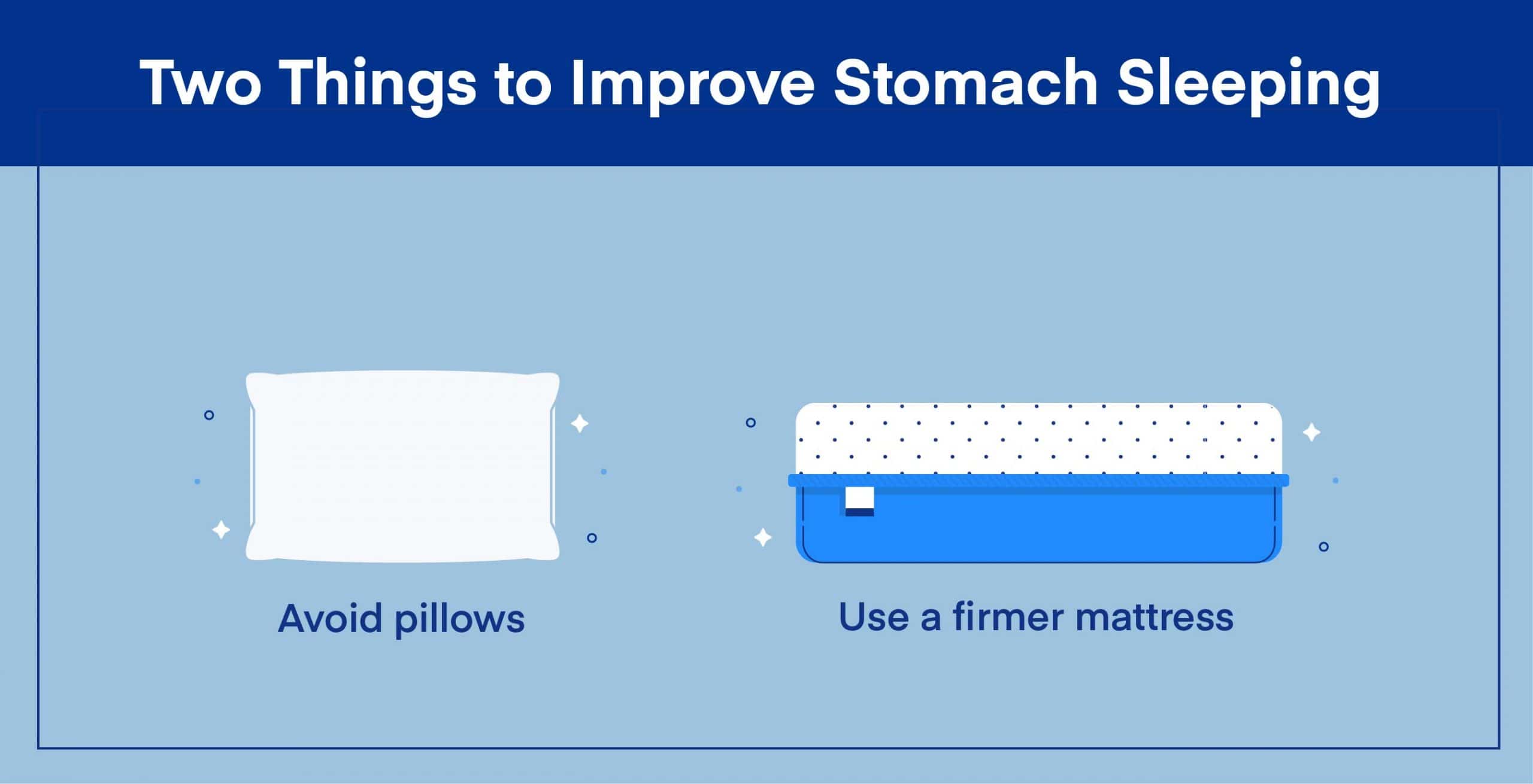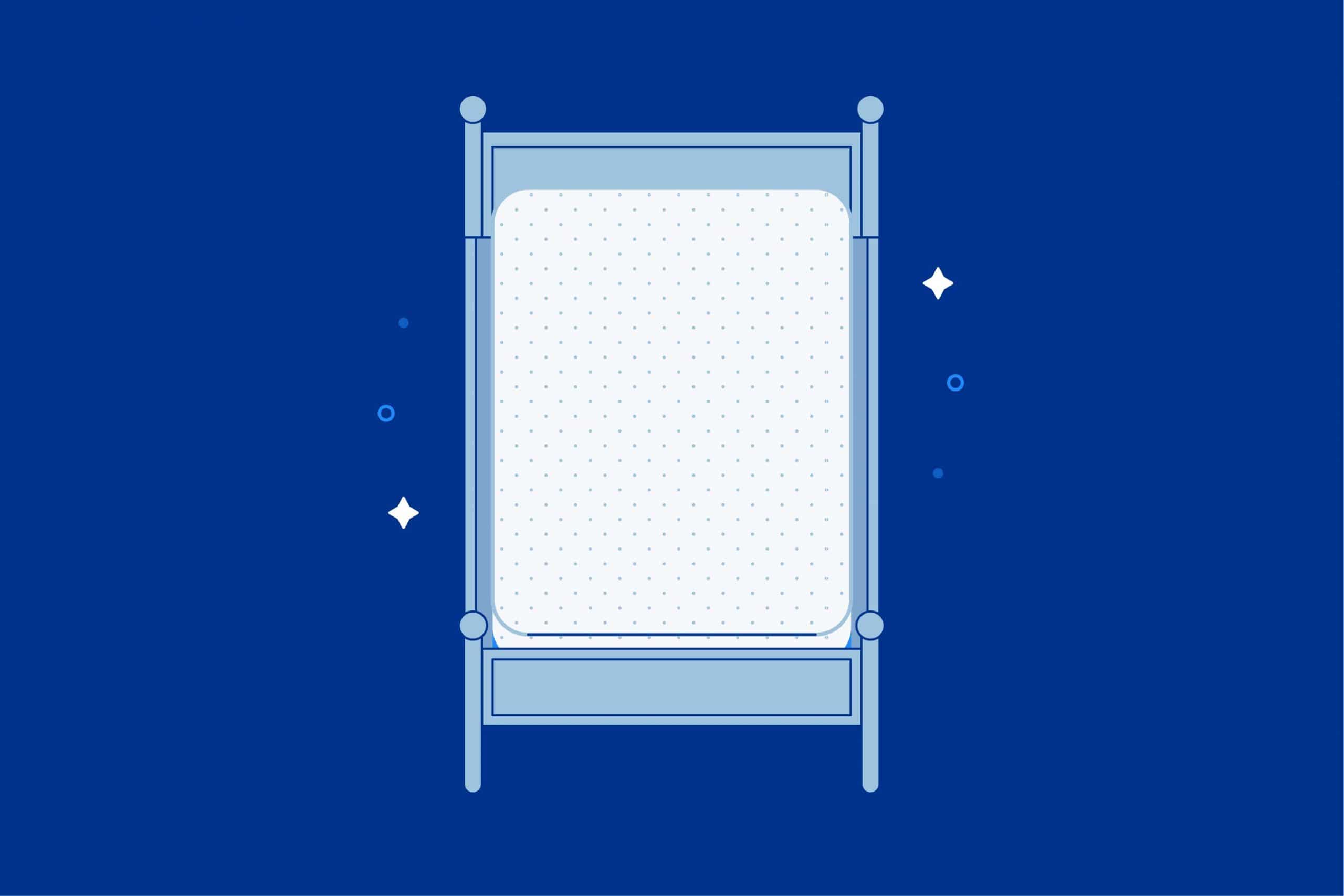Key Takeaways
- Sleeping Position Matters: Your sleeping position can significantly impact your sleep quality and overall health. While most people focus on the duration of sleep, the way you sleep can have various effects on your body.
- Drawbacks of Stomach Sleeping: Sleeping on your stomach can lead to chronic back pain, neck pain, joint discomfort, and shoulder pain. It disrupts the spine’s natural alignment and can worsen existing pain conditions. Stomach sleeping is also not recommended for pregnant women.
- Tips to Avoid Stomach Sleeping Risks: To minimize the potential risks of stomach sleeping, try to train yourself to sleep on your back or side. Use a firmer mattress to prevent abdominal sinkage, use a thin pillow or no pillow for your head, place a pillow under your pelvis, and consider light stretches in the morning to promote proper spine motion and muscle strength.
In our busy, stressful lives, most of us feel accomplished just by being able to sleep for 7 to 9 hours at a stretch. We care less about our sleeping position as long as we get enough sleep, but your sleeping position may be affecting your sleep quality (and your health) more than you realize.
Stomach sleeping can trigger chronic back pain and neck pain, preventing us from sleeping well. In this article, we discuss the problems caused by stomach sleeping and share tips to avoid potential risks associated with it.
Problems Caused by Sleeping on Your Stomach
Stomach sleeping has only one advantage over back sleeping. Sleeping on your stomach can reduce the risk of snoring and sleep apnea, but its many drawbacks far outweigh this one benefit. Sleeping on your stomach disturbs your spine’s neutral position. It causes back, neck, joint, and shoulder pain. Stomach sleeping can exacerbate existing pain in those with lower back problems as well as pregnant women—it’s also important to mention that pregnant women should avoid sleeping on their stomach after the first trimester.
Strains Your Spine
The spine is the main pipeline of all your nerves, so spinal stress can lead to pain and numbness in different body parts. You may experience muscle stiffness, back, neck, or joint aches due to a strained spine.
Dr. Douglas Krebs of Chicago Spine and Sports states. “Joints, whether it is the elbow or the spine, like to be in the mid-range or “neutral” position. When we place a joint in end range for extended amounts of the time pain can develop.”
Since most of your body weight is concentrated in the mid-section, when you lie on your stomach, you exert more pressure on the bed. Extra pressure causes mattress sinkage beneath your abdomen, triggering the spine out of mid-range position. When we place the spine into an end-range position it can place strain on your spine and back, increasing stress in the surrounding muscles.
Stiffness is a common problem in many lower back pain sufferers. If you already have back pain, sleeping on your stomach intensifies your pain.
Hurts Your Neck
Sleeping on your stomach can cause shoulder pain and neck problems. Unless you turn your head to your left or right side, it’s difficult to breathe in the stomach sleeping position.
Turning your head to the side while sleeping on your stomach twists your neck, leading to neck and shoulder pain. A twisted neck also disturbs the alignment of your head and spine, increasing the risk of a herniated disc.
An overstrained spine can cause a herniated disc. Your spine comprises several vertebrae, cushioned between gelatinous discs. Sleeping on your stomach with your head turned to a side can strain your spine.
Unnecessary pressure causes vertebrae to place abnormal pressure on the discs and when this happens it can cause it to rupture the gelatinous discs. The gel leaks out of the ruptured disc, irritating the nerves in the spinal column. This causes sharp pain in your neck and shoulders. A herniated disc needs immediate medical attention. Your doctor may recommend medicines, physical therapy, chiropractic, or surgery to treat it.
Aggravates Pains for Moms-To-Be
During pregnancy, you are prone to experiencing back pain due to hormonal changes. The stomach sleeping position increases this pain. It’s difficult to sleep on your stomach in the later stages of pregnancy but even in the earlier stages, it’s better to avoid this position. The extra weight around the abdomen region increases the pull on your spine, aggravating existing pain.
According to a 2012 medical study, Verified Source National Library of Medicine (NIH) World’s largest medical library, making biomedical data and information more accessible. View source turning to the left side is the best sleeping position for moms-to-be. It promotes blood flow, increasing oxygen levels both for mom and baby. Side sleeping also allows more room for your baby to grow.
Tips to Avoid Potential Risks of Stomach Sleeping

The best way to avoid the potential risks of stomach sleeping is to train yourself to sleep on your back or sides. Before going to bed, tell yourself you will sleep only on your side or back. If you share a bed with a partner, ask them to nudge you when they see you sleeping on your stomach.
Sometimes hugging a pillow while side or back sleeping helps in avoiding the stomach sleeping position. Despite trying, if you can’t sleep on your side or back, follow these steps to minimize potential risks of stomach sleeping:
- Use a firmer mattress to prevent sinkage beneath your abdomen.
- Avoid pillows or use a thin pillow. The flatter the pillow, the less angled your neck and head.
- Put a pillow under your pelvis to reduce the chances of straining it.
- Light stretches in the morning help in the proper motion of the spine. It also strengthens supporting muscles.
Other Common Sleep Positions
Your preferred sleep position is the position in which you feel most comfortable while sleeping. Most people sleep in one of the four popular sleep positions. Stomach-sleeping is one of the positions, and the other three are:
- Side sleeping: Side sleeping is the best position to sleep in. It reduces the chances of snoring, sleep apnea, and acid reflux.
- Back sleeping: Back sleeping maintains your spine’s neutral alignment, promoting back support. It’s the best option for those with back pain but aggravates problems of snoring and sleep apnea. The throat muscles are prone to falling backward in this supine position. This obstructs smooth airflow causing or increasing snoring and sleep apnea problems.
- Combination sleeping: Combination sleepers tend to change sleeping positions through the night. They experience the benefits and drawbacks of all the sleeping positions.
FAQs
Do stomach sleepers need a firm mattress?
Yes, stomach sleepers need a firmer mattress to prevent sinkage beneath the abdomen. A good mattress for stomach sleepers offers more support, helping you avoid the chances of spinal misalignment. Spinal misalignment causes back, neck, and shoulder pain leading to poor sleep.
What is the healthiest sleeping position?
Side sleeping is the healthiest sleep position because it reduces the chances of snoring, sleep apnea, and acid reflux. It may sometimes cause hip and shoulder soreness because these regions bear the weight of your body. Sleep on a medium-soft or soft mattress to cushion these regions and lower the risks of shoulder soreness.
How do I stop sleeping on my stomach?
Start by sleeping on your side every time you lie down to rest. Use a long cylindrical body pillow, designed to help stomach sleepers transition to side sleeping. It gives you the support you need to fall asleep. Tell yourself or ask a partner to nudge you if he or she sees you sleeping on your stomach. Gradually, you will get into the habit of side sleeping through the night.
Is it better to sleep on your stomach or back?
Back sleeping is better than stomach sleeping. It supports your spinal alignment, reducing the chances of aches. Stomach sleeping misaligns the natural curve of your spine, which can lead to lower back pain. It also strains your spine causing neck and shoulder pain. Stomach sleeping has only one advantage over back sleeping, which is a lowered risk of snoring and sleep apnea.
Is it better to sleep without a pillow in the stomach-sleeping position?
Sleeping without a pillow keeps your head flat on the bed. This may reduce some stress on your neck, even when you turn to the right or left side. Sleeping without a pillow lowers the risk of straining your spine in the stomach sleeping position.
Conclusion
If you are among the 16 percent of Americans who prefer stomach sleeping, you may be waking up with aches or numbness in certain body parts. Sometimes the discomfort may even wake you up in the middle of the night. These painful sleep disruptions deprive you of quality sleep. Lack of sleep affects your productivity the next morning. To avoid these risks, it’s better to train yourself to sleep on your side or back.
About the author
Sanchita Sen is a full-time writer focusing on the sleep health and mattress industry. She is a former journalist who has written numerous articles on the healthcare sector. Some of the topics she has covered include how to lucid dream, fever dreams, melatonin for sleep, and best gel memory foam mattress. Sanchita holds a Master of Arts in Communications from Convergence Institute of Mass Media and Information Technology Studies. She is also a published author, who seeks inspiration from both real life and the world of fiction.
View all posts




